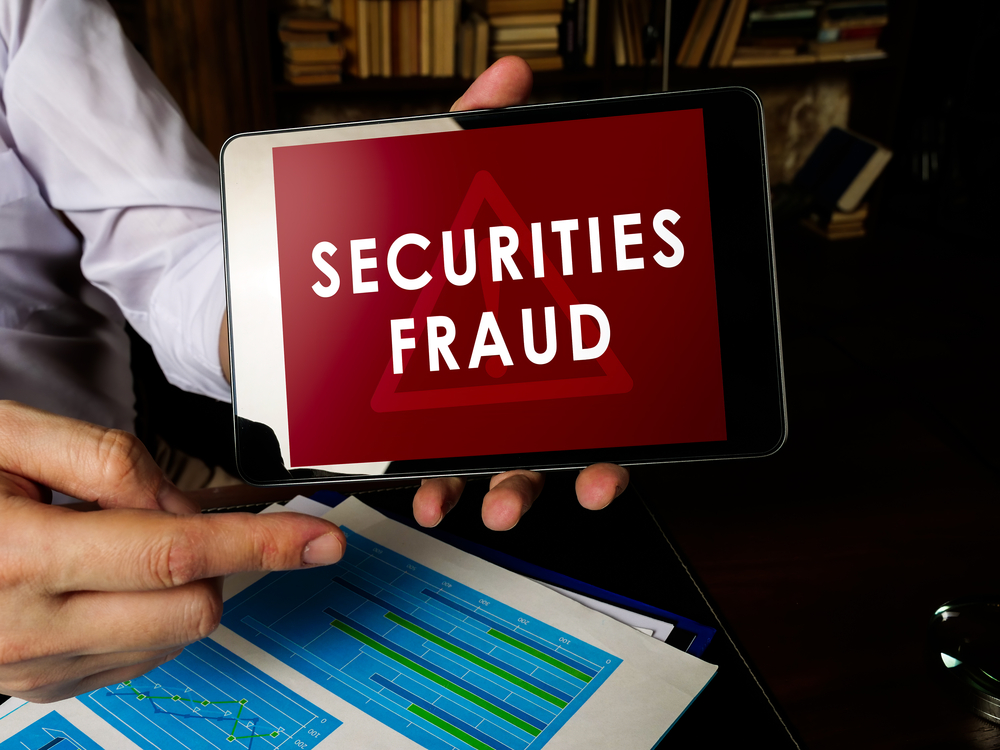
Ask a Lawyer: What Is Securities Fraud?
Securities fraud refers to any time false or misleading information is used to influence the decisions of investors. You may have heard of Ponzi schemes, pump-and-dump schemes, and insider trading, all of which are examples of securities fraud. These are some of the most serious crimes you’ll come across in the investment world. And if you’ve been accused of such a scheme, securities fraud defense lawyers can help protect you from civil or criminal prosecution.
Ask a Lawyer: What Is Securities Fraud?
There are many different types of securities fraud, also known as stock fraud or investment fraud. Anyone investing in securities or commodities can fall afoul of these kinds of schemes. Every year, the total amount Americans lose to them stretches into the billions. While overall securities fraud is thankfully on the decline, certain forms, such as investment fraud through social media, are rapidly increasing.
These days, there are more regulations for consumer protection from these white-collar crimes than ever before and also stricter enforcement of the relevant laws. To keep your firm and reputation safe from accusations of both minor and major securities fraud, it helps to know the most common types of investment fraud around today.
Internet Fraud
Also known as pump-and-dump schemes, internet fraud has perpetrators using their online social media presence to spread false information about the value of a certain stock they hold. The fraudsters seek only to attract a surge of excited buyers, which artificially ‘pumps’ up the value of the stock.
When the stock price reaches a high enough level, the fraudsters ‘dump’ their holdings, selling off and pocketing the profit. Internet fraud is unfortunately on the rise, highlighted by recent high-profile cases perpetrated by popular online personalities and podcasters.
Ponzi Schemes
With Ponzi schemes, the fraudster presents the facade of a legitimate investment opportunity with a promise of high returns. But in reality, no legitimate value-producing business exists.
The fraudster uses the money from new victims to pay the returns to the earlier investors, thus keeping up the facade of a profitable business. Ponzi schemes depend on a continual influx of new investors to keep going. When the victims stop coming in, the scheme collapses.
Pyramid Schemes
A pyramid scheme is similar to a Ponzi scheme in that no actual money-making business exists, and new victims are continually required to keep the scheme alive. The key difference with pyramid schemes is that victims join in with the scam.
When an individual invests, they immediately begin enrolling further victim investors to follow in their footsteps, thus becoming fraudsters themselves. In this way, every participant keeps the house of cards growing for as long as possible before it inevitably collapses.
High-Yield Investment Fraud
These age-old schemes always offer extraordinarily high returns on the investor’s funds with little or no risk, when in fact, there is a significant risk and often no underlying value at all. High-yield investment fraud is sometimes also a Ponzi scheme. But these types of schemes can occur in any investment category, including stocks, real estate, commodities, cryptocurrency, and more.
Advance Fee Schemes
With advance fee schemes, another “too good to be true” investment opportunity is put forward where in fact, no legitimate investment exists. This time, victims are manipulated to expect a large payout very soo,n but they must first pay a fee to cover taxes, legal expenses, processing fees, or some other invented cost. Once the funds are paid, the fraudster disappears and moves on to the next victim.
Insider Trading
When someone trades stocks based on access to confidential non-public information, they’re guilty of insider trading. This is considered a breach of fiduciary duty to the shareholders or to other relationships of trust and confidentiality.
For example, a CFO might share confidential information about an upcoming acquisition with someone outside of the company who owns substantial shares. If that friend then sells his shares, acting upon the CEO’s information, both of them are guilty of insider trading.
Accounting Fraud
One of the most common types of investment fraud is accounting fraud. Accounting fraud includes any failure to record accurately and report expenses, assets, liabilities, revenue, or anything else in the company’s finances. The Enron scandal is a famous example of accounting fraud, and more recently, similar accusations have been leveled against the cryptocurrency exchange FTX.
What To Do If You’re Accused of Securities Fraud
Charges of securities fraud can come out of the blue. It’s often a shocking and scary experience for those facing the accusations. As a first step, it’s often a good idea to suspend your trades and transactions, especially the specific activities under investigation.
How Securities Fraud Defense Lawyers Can Help
Whether the FBI or local state authorities are investigating your case, it’s unwise to communicate with them before hiring a good lawyer. Even while giving an initial statement, without legal counsel, you might well say something that can harm your case.
An experienced securities fraud defense attorney knows the law and your rights and can represent and protect you until the investigation is over. You can find out more about how a fraud defense lawyer can help with these complex and sensitive cases.
Securities fraud charges are an unfortunate risk all investors must be wary of. Corporations must also take care to avoid potential accusations. With a firm understanding of what accounts for securities fraud, everyone is safer from harm.




